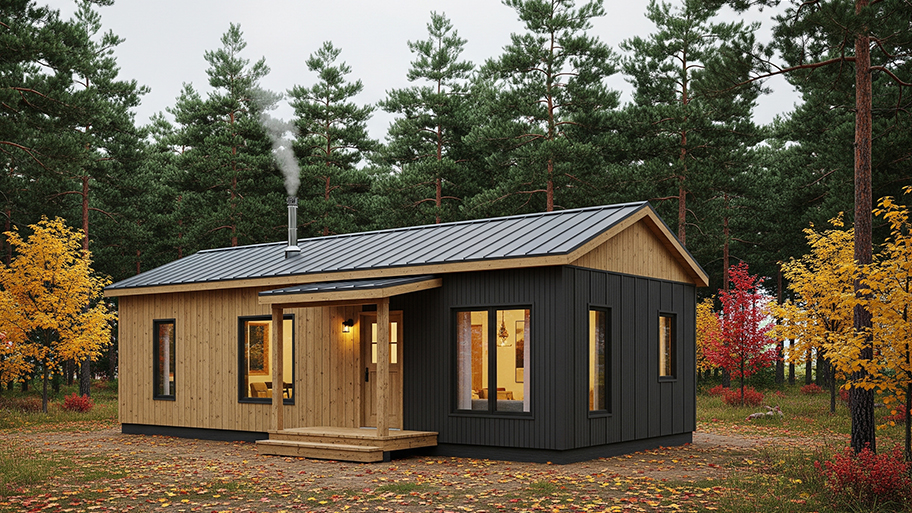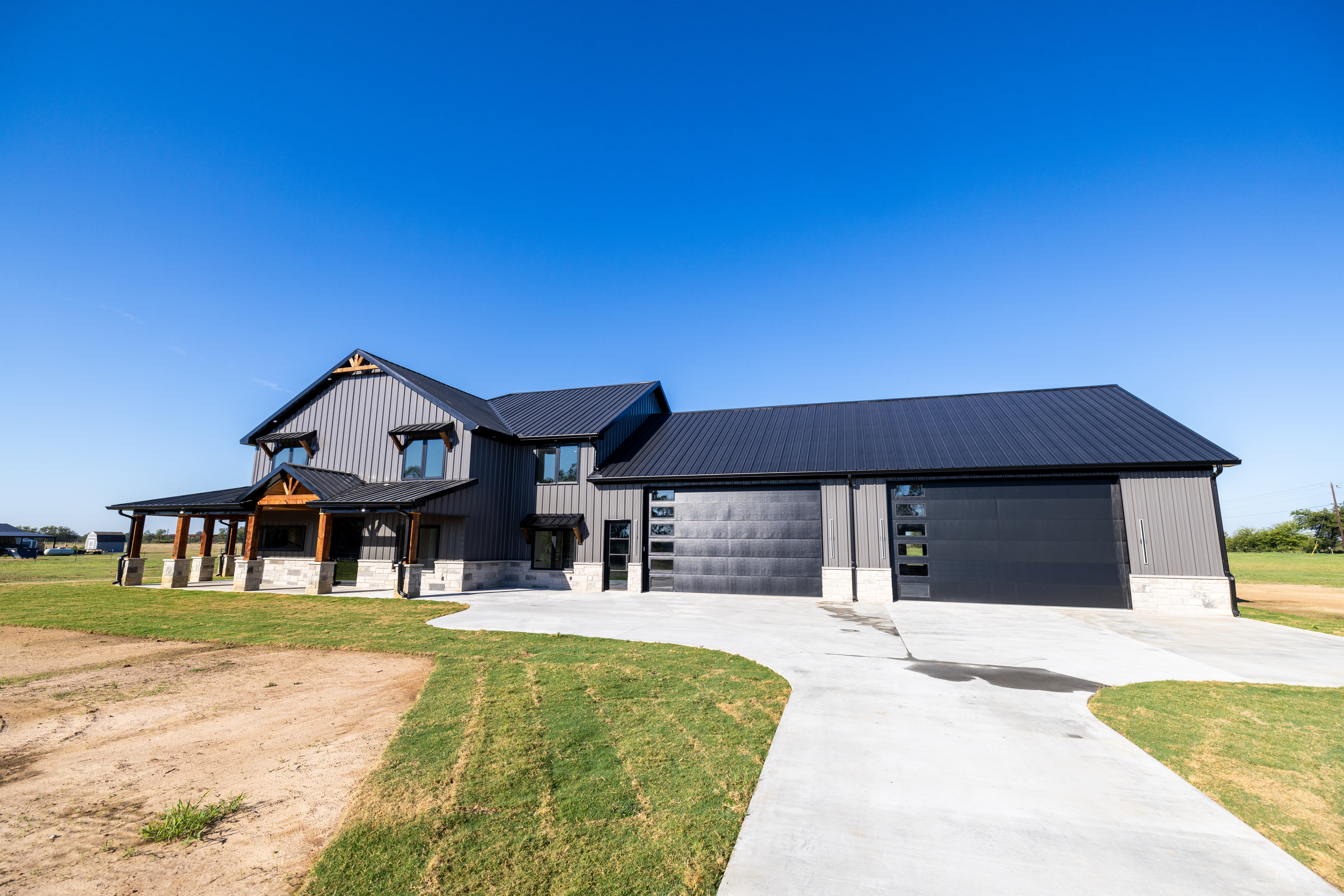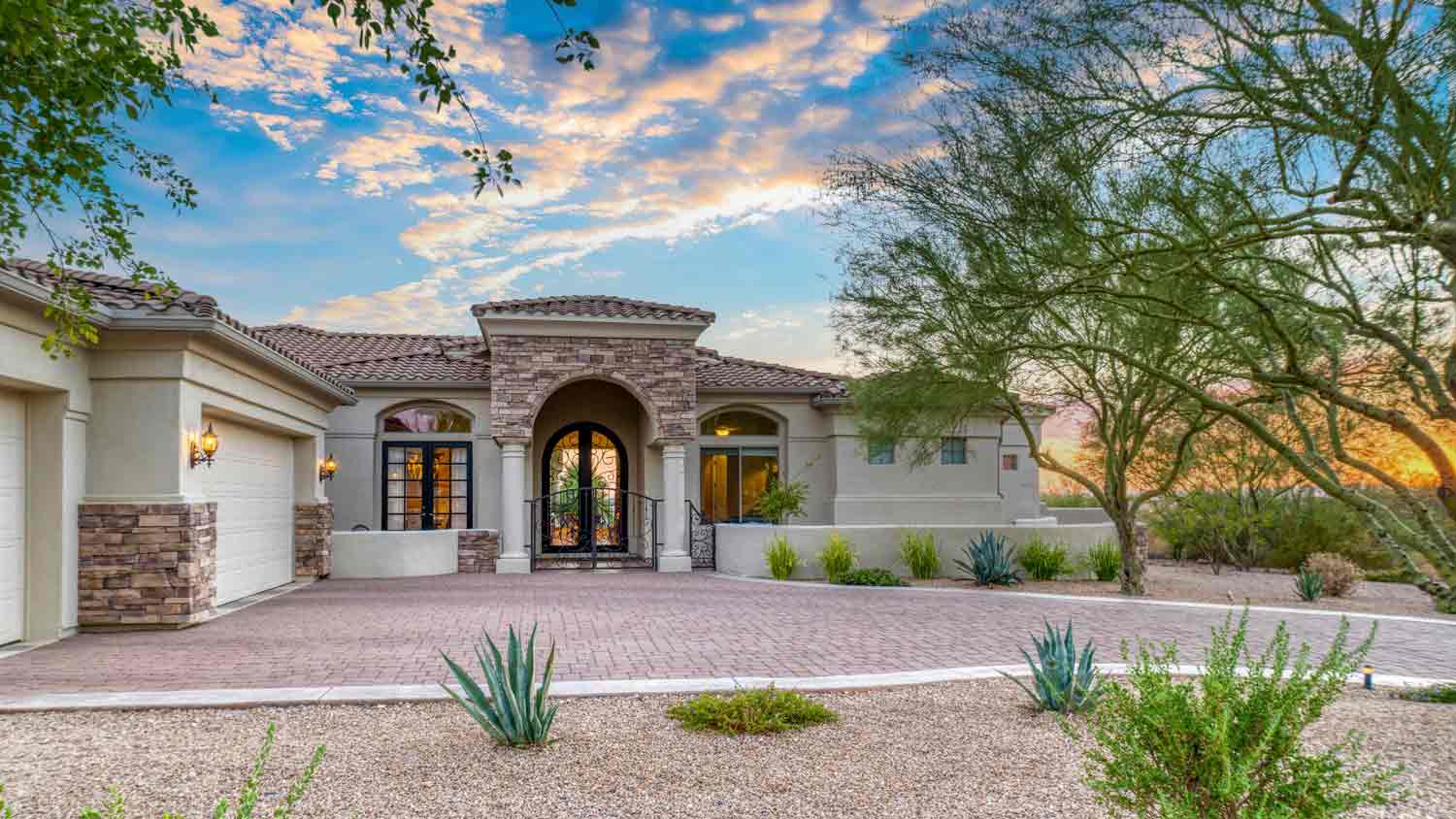
The cost to rebuild a house after a disaster or demolition depends on the house size, features, and more. Learn what affects the cost to rebuild a house.
The average cost to build a house is $323,026, and most projects total between $138,937 and $531,294. A pro will factor in location, material quality, home size, and more.


You can expect to pay around $150 per square foot for new construction.
The price will depend on square footage, your location, the materials you choose, and other factors.
Labor will account for approximately 40% of your total project costs.
Building a house might take seven to 14 months.
Building a house costs $323,026 on average, and most homeowners spend between $138,937 and $531,294. That said, a luxury home in a major metropolitan area might set you back as much as $950,000.
The square footage of your home, including the number of bedrooms, will influence the final price. Other important cost factors include the type of house, your location, labor rates, material quality, and more.
To help homeowners with their next project, Angi provides readers with the most accurate cost data and upholds strict editorial standards. We’ve surveyed thousands of real Angi customers about their project costs to develop the pricing data you see, so you can make the best decisions for you and your home. We pair this data with research from reputable sources, including the U.S. Bureau of Labor Statistics, academic journals, market studies, and interviews with industry experts—all to ensure our prices reflect real-world projects.
The cost to build a custom home can range from $100 to $500 per square foot, with an average price of $150 per square foot. Naturally, larger homes require more labor and materials, and this will be reflected in higher prices. Here’s how your home size might affect building costs:
| Home Size (Sq. Ft.) | Average Cost | Average Price Range |
|---|---|---|
| 1,000 | $150,000 | $100,000–$500,000 |
| 1,500 | $225,000 | $150,000–$750,000 |
| 1,750 | $262,500 | $175,000–$875,000 |
| 2,000 | $300,000 | $200,000–$1,000,000 |
| 2,200 | $330,000 | $220,000–$1,100,000 |
| 3,000 | $450,000 | $300,000–$1,500,000 |
When building a home, each additional bedroom adds $20,000 to $80,000 or more to the total construction cost. The price is determined by the additional square footage for the bedroom, as well as larger living spaces, extra bathrooms, and expanded utility systems to accommodate more occupants.
Here are estimated new home construction costs based on the number of bedrooms, assuming a price of $150 per square foot:
| Number of Bedrooms | Average Price Range |
|---|---|
| Three | $130,000–$225,000 |
| Four | $250,000–$350,000 |
| Five | $350,000–$450,000 |
Labor will comprise between 30% and 50% of the total cost when building a custom home. You’ll need to hire multiple pros, including general contractors, construction managers, structural engineers, architects, and more. The exact breakdown depends on the scope and complexity of your project.
Here’s how much each pro will cost, on average, to build a new home:
General contractor costs: $32,000–$64,000 (10% to 20% of the total construction cost)
Construction manager costs: $16,000–$48,000 (5% to 15% of the total project cost)
Architect costs: $16,000–$48,000 (5% to 15% of the total project cost)
Structural engineer costs: $2,000–$8,500
Draftsperson costs: $75–$125 per hour
Foundation contractor costs: $4,000–$14,800
House framer costs: $1,400–$7,700
Plumber costs: $45–$200 per hour
Electrician costs: $50–$100 per hour
HVAC technician costs: $5,000–$12,500
Roofer costs: $5,900–$13,200
Building a home is more expensive in areas with higher costs of living, such as New York ($395,000) and California ($458,000). It’s more affordable in lower-cost states like Georgia ($291,000), especially in rural or suburban areas. These regional differences are driven by land values, labor rates, and the cost of construction materials.
Here’s a breakdown of estimated home building costs by location, based on data compiled by Angi:
| State | Average Cost to Build a House |
|---|---|
| California | $458,000 |
| Florida | $328,000 |
| Georgia | $291,000 |
| Illinois | $303,000 |
| Michigan | $291,000 |
| New York | $395,000 |
| North Carolina | $312,000 |
| Ohio | $301,000 |
| Pennsylvania | $304,000 |
| Texas | $293,000 |
While the average cost to build a home is $323,026, it’s dependent on several additional factors. These include lot prices in your area, design fees, permits and inspections, interior and exterior finishes, and other associated costs. Some homeowners also need to connect their new home to utilities, which further increases their bill.
On average, here’s what you might pay for additional costs when building a home:
Land: $3,000–$150,000 and beyond
Installing a sewer line: $1,400–$5,800
Running an electrical line to your new home: $4,000–$20,000
Design fees: $500–$5,000 for stock design options, or $5,000–$20,000 for custom plans
Construction building permits: $500–$2,000
New construction inspection: $300–$400
Land excavation: $1,500–$10,000
Land grading: $1,000–$3,300
Land surveying: $1,800–$6,500
Land clearing: $1,400–$6,200
Building a foundation: $4,000–$14,800
Framing your house: $20,000–$50,000
Interior finishes: $50,000–$175,000
Exterior finishes: $25,000–$60,000
Temporary off-site living expenses: $8,600–$11,900
Site cleanup: $0.10–$0.50 per square foot
Premium materials: 25%–100% more than standard or builder-grade options
Although building a house yourself can save 30% to 50% of your project costs by cutting labor expenses, hiring a custom homebuilder near you is often the best option. That’s because construction requires significant experience and training.
Here’s why DIY homebuilding might be difficult:
Inspections and permits: Your home must pass inspection and comply with local safety and zoning codes.
Licensed work required: Most municipalities require licensed professionals to handle critical systems, such as plumbing and electrical, before issuing a certificate of occupancy.
Safety concerns: Attempting major construction tasks can be extremely dangerous.
If you want to participate in the process and save money where you can, focus on smaller tasks instead, such as the following:
Installing floor tiles: $400–$4,250
Hanging drywall: $1,000–$3,200
Painting walls and ceilings: $970–$3,100
Installing appliances like a dishwasher: $123–$299 per appliance
Hanging light fixtures: $160–$1,000
Caulking: $100–$300
Driveway sealing: $280–$860
Renovating a house is often more affordable than building a new house:
Average cost of a full home renovation: $52,000 (up to $90,000+ depending on scope)
Average new custom home cost: $323,026, not including demo
You might renovate a home if you desire the following:
New floors, kitchen, or bathrooms
Small floor plan changes
Lower initial cost compared to building new (though extensive renovations can sometimes approach new-build costs)
Increased resale value without starting from scratch
No relocation from your current location or lot
On the other hand, if you desire the following factors, building a new home might be the better option:
Complete design freedom
A new floor plan without limitations from your existing structural walls, foundation, and lot size
A basement, especially if your existing home has a slab foundation
Relocation from a house that’s in poor condition (for example, it has major foundation issues or extensive mold)
Maximum energy efficiency with modern systems and materials
Fewer unexpected surprises, like asbestos or outdated wiring hidden behind walls
Home renovations often cost less than new builds, but they’re most effective when preserving a home’s existing structure. If you’re unsure, consult a general contractor to compare feasibility and costs.
How do you keep homebuilding costs under control as you launch into this endeavor? Here are a few ways to save:
Choose a plot of land attached to utilities and the local sewer system. This alone will save you between $6,500 and $30,000 on the cost of setting up utilities.
Know who to hire to build your home. Hiring a skilled local contractor might save you 5% to 20% of the total home construction cost. Those savings come from accessing trade discounts, avoiding costly mistakes and delays, and leveraging local knowledge about permits, materials, and trusted subcontractors.
Set a firm budget before meeting with your contractor, but leave a 5% to 10% buffer for unforeseen changes and potential delays.
Consider building up instead of out to lower costs. Adding a second story costs about 10% to 30% less per square foot compared to building a larger single-story home with a wider foundation. By building up, you can add more square footage at a fraction of the cost.
Opt for stock design plans over custom plans. Not only will your general contractor be more familiar with the cost of materials, but you will also significantly reduce costs—often by 10% to 25%.
The homebuilding process can be daunting. Hiring a general contractor is one of the most important ways to avoid the top mistakes when building a home. You can also steer clear of the following pitfalls:
Don’t rush into decisions: Take your time when selecting the right location, contractor, and building team. Speak with at least three contractors who are highly rated and recommended.
Don’t go overboard with DIY: A project leader should guide your ideas toward the most budget-friendly and stylish options, and they’ll also save you time and frustration. Feel free to DIY what you can, but don’t overdo it.
Don’t be too hands-off: While you don’t want to do too much, ensure you’re involved throughout the process. Keep a consistent communication schedule with your contractor, and always read contracts before signing.
Don’t underestimate time and money: Plan for delays in the timeline to build a custom home. You’ll most likely encounter time-consuming, unexpected issues along the way. It’s essential to set aside some money for these expenses.
While building a house yourself can save 30% to 50% of the total project cost, it's best to hire a pro.
A home builder or general contractor will have the necessary skills and equipment to ensure the job is done right.
Renovating your home can be more cost-effective, but you’re limited by the existing lot, foundation, and structure of the home.
Each additional bedroom will add $20,000 to $80,000 to your final bill when building a house.
From average costs to expert advice, get all the answers you need to get your job done.

The cost to rebuild a house after a disaster or demolition depends on the house size, features, and more. Learn what affects the cost to rebuild a house.

The cost to build a brick house is high, but the aesthetic and durability can be well worth the investment if you’re looking for something unique.

Modular homes are more affordable than stick-built homes, but by how much? Learn about modular home costs to see if they fall within your budget.

Barndominiums combine the comforts of home with rural living. Compare the pros and cons of barndominium homes to see if one is right for you.

What is a storm shelter? It can keep you safe during a tornado, hurricane, or other weather event. This guide will introduce you to the different types.

When building a home, going custom gives you the freedom to create your dream house. Learn about the cost to build a custom home and the factors to consider.